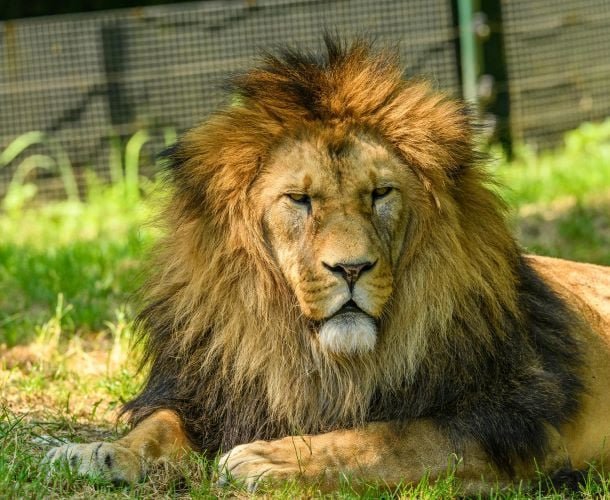Captive lions taken from their wild habitats in Africa and raised in captivity, are being slaughtered for the pleasure of tourists, particularly from Western countries, with the US a major contributor.
Lion Day is celebrated Aug. 10.
Thousands of captive lions, who spend their lives entertaining tourists behind steel bars, are kept ready for the day when they will be killed under the guise of hunting events.
Wild lions, who have lost the majority of their population and habitats due to human activity in the last century, are struggling to survive in the vanishing savannas of Africa.
Lion population has fallen by 43% since 2001
There were about 200,000 lions in the wild at the beginning of last century, according to estimates by the Oxford University Wildlife Conservation Research Unit.
By the end of the last century, the population, which had dwindled to around 33,000 due to hunting and other human factors, had decreased by 43% since 2001.
Today, it is estimated that 23,000 lions remain in the wild.
Having lost nearly 95% of their historical natural habitats, lions today primarily live in well-protected national parks in Tanzania, South Africa, Botswana, Namibia, Zambia and Zimbabwe.
Captive lions
Research includes only lions living in the wild in global lion population estimates.
Captive lions, which are removed from their natural habitats and live in captivity, are excluded from the list.
The term captive lions refers to lions born and raised on special farms for commercial purposes.
Those lions lack hunting skills and do not adapt to the wild due to their fearlessness of humans.
Lion tourism
South Africa, which hosts one of the largest lion populations in the world, has about 3,500.
It is also one of the leading countries with the largest captive lion population.
According to a 2024 report by the World Animal Protection Society, there are approximately 8,000 captive lions in 366 farms in the country.
The captive lion industry, which generates more than $40 million annually for the South African economy, is a significant part of the tourism sector.
Lions kept in private nature reserves and farms across the country are displayed to tourists visiting the area for safaris, for a fee.
Tourists who visit the facilities, where entrance fees typically range from $10 to $15, can pay an additional fee to pet and take photos with lions separated from their families.
One of the most popular activities among tourists is watching captive lions being fed by caretakers.
Lion hunting
Captive lions, who spend their lives entertaining tourists behind steel bars and cages, are often killed for sport by tourists from Western countries when they grow old.
South Africa, where captive lion hunting is legal with a special permit, is one of the leading centers for lion hunting worldwide.
According to a 2022 report by Humane Society International, approximately 4,000 captive lions were hunted by foreigners in South Africa between 2014 and 2018.
The report revealed that more than half of the lions were hunted by American tourists, followed by Spaniards, Russians, Danes, Canadians and Germans.
According to information obtained by Anadolu reporters from South African tourism agencies, the cost of hunting parties ranges from $4,000 to $60,000 in 2024, depending on the type of hunt and tour.
The tours are conducted as safari tours lasting seven to 10 days on farms covering thousands of acres, mostly in the North West and Limpopo provinces.
Hunts, where lions are killed with rifles from a safe distance in more confined areas, are referred to as “canned hunts.”
Hunters can take photos with the lions they kill and bring the skulls home as trophies.
Lion bones to far east
The bones of hunted lions are in high demand in Far Eastern countries, especially China, where they are used to produce luxury ornaments, jewelry and aphrodisiacs.
South Africa, the only country with a legal lion industry, is a major supplier.
Although the government has imposed quotas on bone trading in recent years due to national and international pressure, the highly profitable lion bone trade has led to captive and wild lions being targeted by hunters.
South Africa’s efforts to shut down captive lion industry
Under pressure from national and international environmental organizations, the South African government has been focusing on the lion industry in recent years.
In 2022, the Department of Forestry, Fisheries, and the Environment took steps to end the industry, including promoting voluntary exit from the sector and working on various strategies.
While Lion Day is celebrated on Aug. 10, the captive lion industry, however, continues to operate legally in the country.

